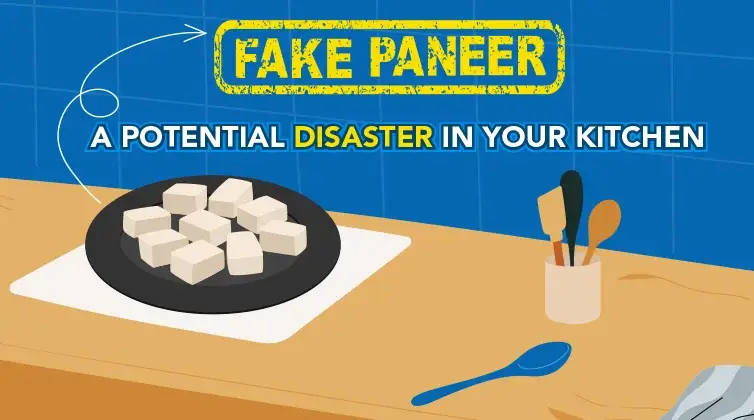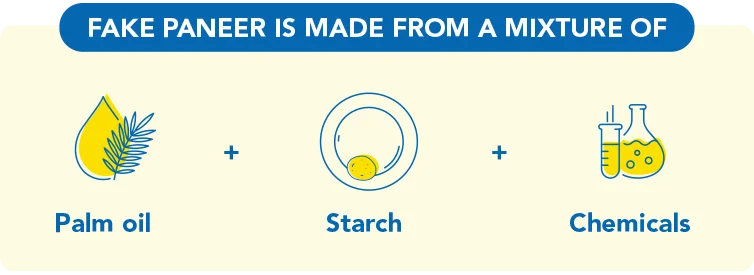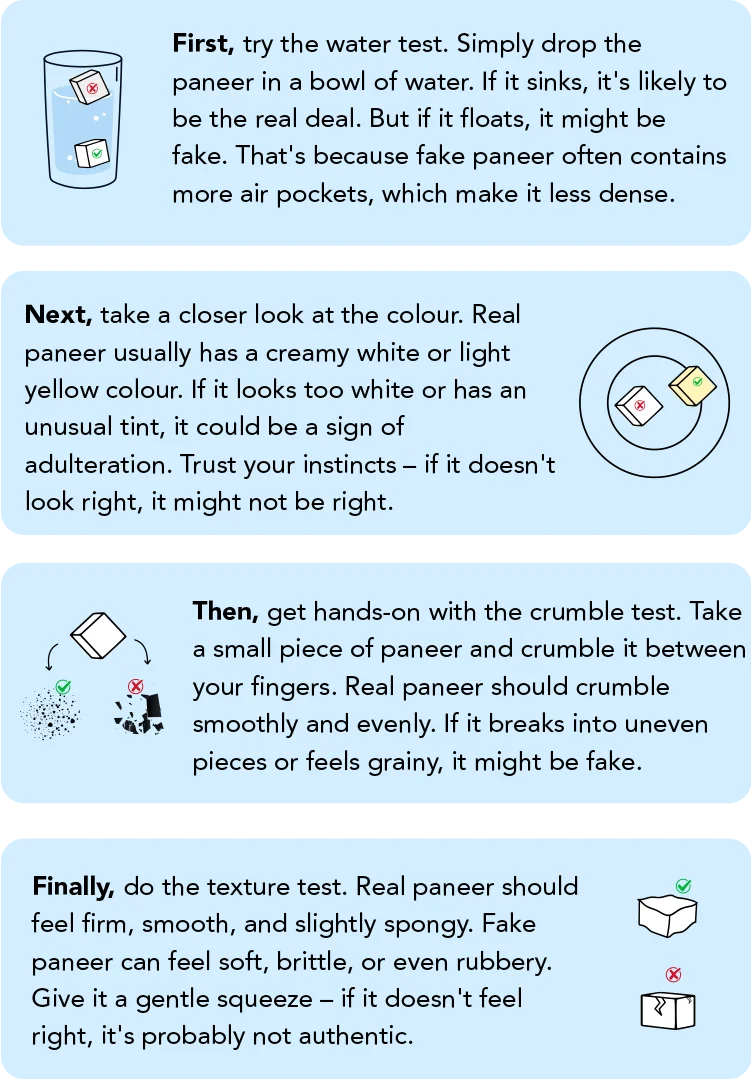Subscribe to get weekly insights
Always stay up to date with our newest articles sent direct to your inbox
Published on 6 Oct, 2025
favorite0Like
favoriteBe the First to Like
72 Views
3 min Read

Expecting high profit margins, Yogesh started a dairy business. He supplied fresh milk and dairy products to his customers and at first, the business got a good response. However, a few months down the road he started facing the biggest challenge that most entrepreneurs in the food business encounter - competition. Due to numerous vendors in the locality, the prices he charged were being beaten down and this was particularly true for paneer.
Despite his best efforts, he found it difficult to match the low prices offered by his competitors. Then, in a desperate bid to stay competitive, he began to do what most businesses in the dairy industry do - he started to produce Synthetic Paneer!
Unfortunately, this is not Yogesh’s story alone. Numerous vendors across the country are selling synthetic paneer disguised as the genuine product.
____________________________________________________________________________
Synthetic paneer, also known as analogue paneer, is a non-dairy product designed to resemble traditional paneer (Indian cheese) in appearance, texture and taste, but without using real milk.

Unlike authentic paneer, which is derived directly from milk, fake paneer is cheaper. Since it can be challenging for consumers to distinguish between genuine and fake paneer, this scam has been spreading, undetected by many.
Only on close scrutiny, will consumers realise that while real paneer is characterised by its firm texture and milky odour, fake paneer is more likely to have a chewy texture.
While analogue/ synthetic/ fake paneer is legally permissible in India, it must be clearly labelled as a non-dairy product by the Food Safety Standards Authority of India (FSSAI).
Synthetic paneer isn't new but it hit headlines again in 2024 when a major food delivery platform came under fire for distributing “analogue paneer” through its B2B supply chain. Although the product was labelled appropriately, the incident ignited concerns over synthetic paneer being widely used by eateries and street vendors looking to cut costs. The fear is that when you order your favourite paneer dish at a restaurant, you may be dished up a cheap, unhealthy substitute—and your health could be paying the price.
A food safety investigation in Noida and Greater Noida tested 702 food samples—revealing paneer as the most adulterated product. A staggering 83% of paneer samples failed quality tests, and 40% were deemed unsafe, containing harmful chemicals and unidentified substances. Beyond paneer, milk and ghee also showed high adulteration rates. These findings underscore a widespread public health risk, especially as paneer is a key protein source for many.
Fake paneer poses a significant threat to our health and its impact can be far-reaching. Unknown to many, fake paneer contains harmful substances that can compromise our overall well-being.
When consuming fake paneer, you are actually consuming:
Now that we know what fake paneer contains, let’s look at the possible threats that come with its consumption.
____________________________________________________________________________
It’s clear that fake paneer poses serious health risks. This is especially true for children and pregnant women. But in general, the synthetic additives and harmful chemicals often found in adulterated paneer can potentially lead to long-term health complications.
Authorities and regulators have been doing their bit by penalizing Food Business Operators (FBOs) and dairy producers who are cutting corners with steep fines. In the past year, violations of food safety standards under the FSS Act, 2006, and relevant IPC provisions resulted in penalties amounting to ₹13.8 lakh, along with multiple criminal cases. Beyond legal action, there's a bigger cost: loss of consumer trust which can reduce sales and lead to business shutdowns.
At the personal level, we must do our bit too. Being vigilant about what you eat and opting for trusted sources is the first line of defence. Regular health check-ups can help detect and manage early signs of exposure-related issues.
Fortunately, there are practical tests that can help you check the quality of paneer that you consume.

By being mindful of these simple quality checks, you can rest assured that the paneer you’re serving your loved ones is safe and authentic.
But the question remains: What other foods are hiding secrets in your kitchens?
We will come up with some more topics like this. Stay tuned to receive insightful articles directly in your mailbox!
Till then, share this article with the people you care about.
Stay informed, stay insured.
Take Care
References: indiatimes.com, aurigaresearch.com
favoriteBe the First to Like
Always stay up to date with our newest articles sent direct to your inbox
Loading...